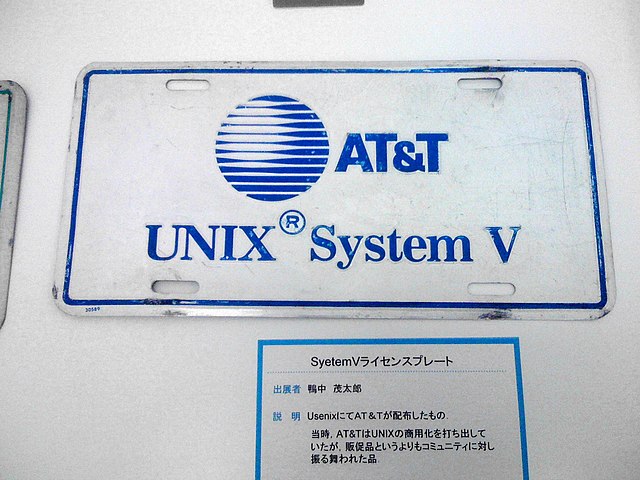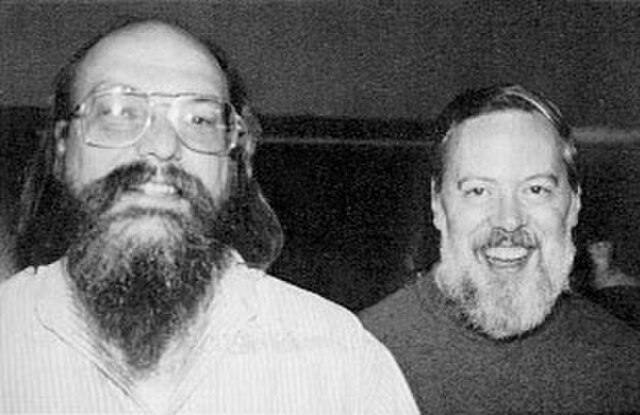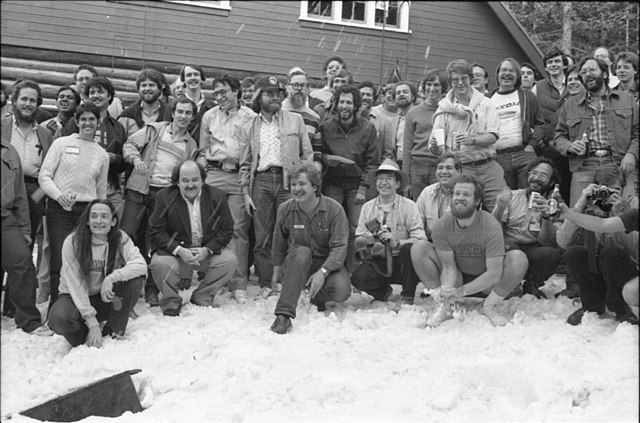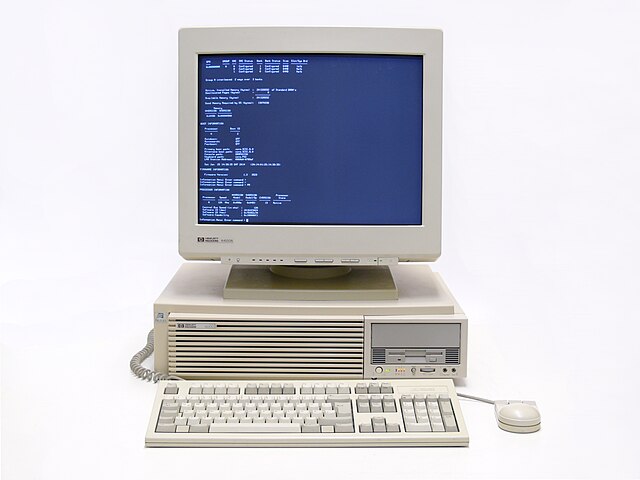Unix System V is one of the first commercial versions of the Unix operating system. It was originally developed by AT&T and first released in 1983. Four major versions of System V were released, numbered 1, 2, 3, and 4. System V Release 4 (SVR4) was commercially the most successful version, being the result of an effort, marketed as Unix System Unification, which solicited the collaboration of the major Unix vendors. It was the source of several common commercial Unix features. System V is sometimes abbreviated to SysV.
HP 9000 workstation booting HP-UX, Hewlett-Packard's System V
AT&T System V license plate
DMD 5620 terminal, based on the Blit, connected to a SVR3 host and showing the Layers interface
The DEC VAX-11/780 was the porting base for SVR2.
Unix is a family of multitasking, multi-user computer operating systems that derive from the original AT&T Unix, whose development started in 1969 at the Bell Labs research center by Ken Thompson, Dennis Ritchie, and others.
Ken Thompson and Dennis Ritchie, principal developers of Research Unix
Photo from USENIX 1984, including Dennis Ritchie (center)
Promotional license plate by Digital Equipment Corporation, actual license plate is used by Jon Hall
HP 9000 workstation running HP-UX, a certified Unix operating system








